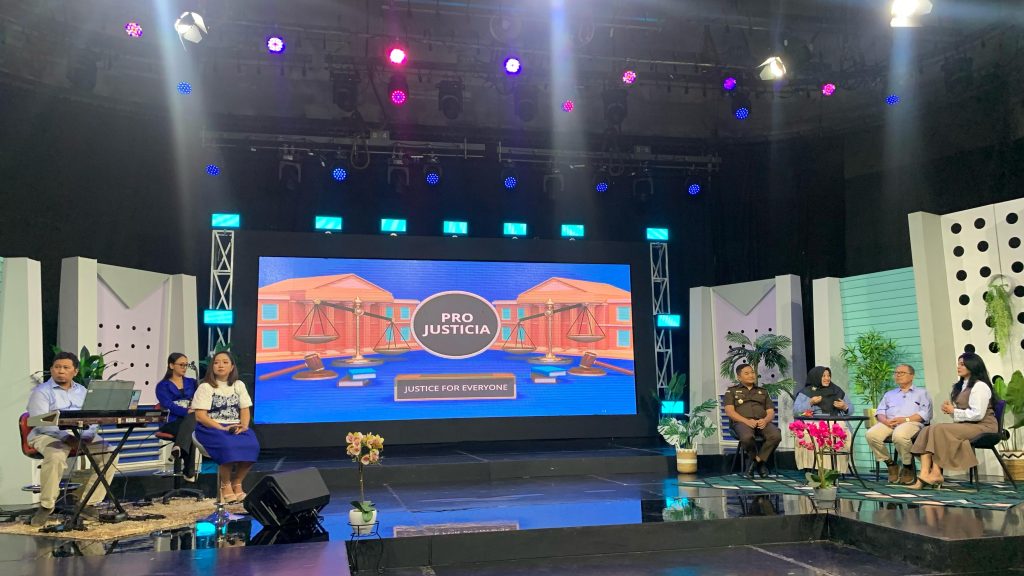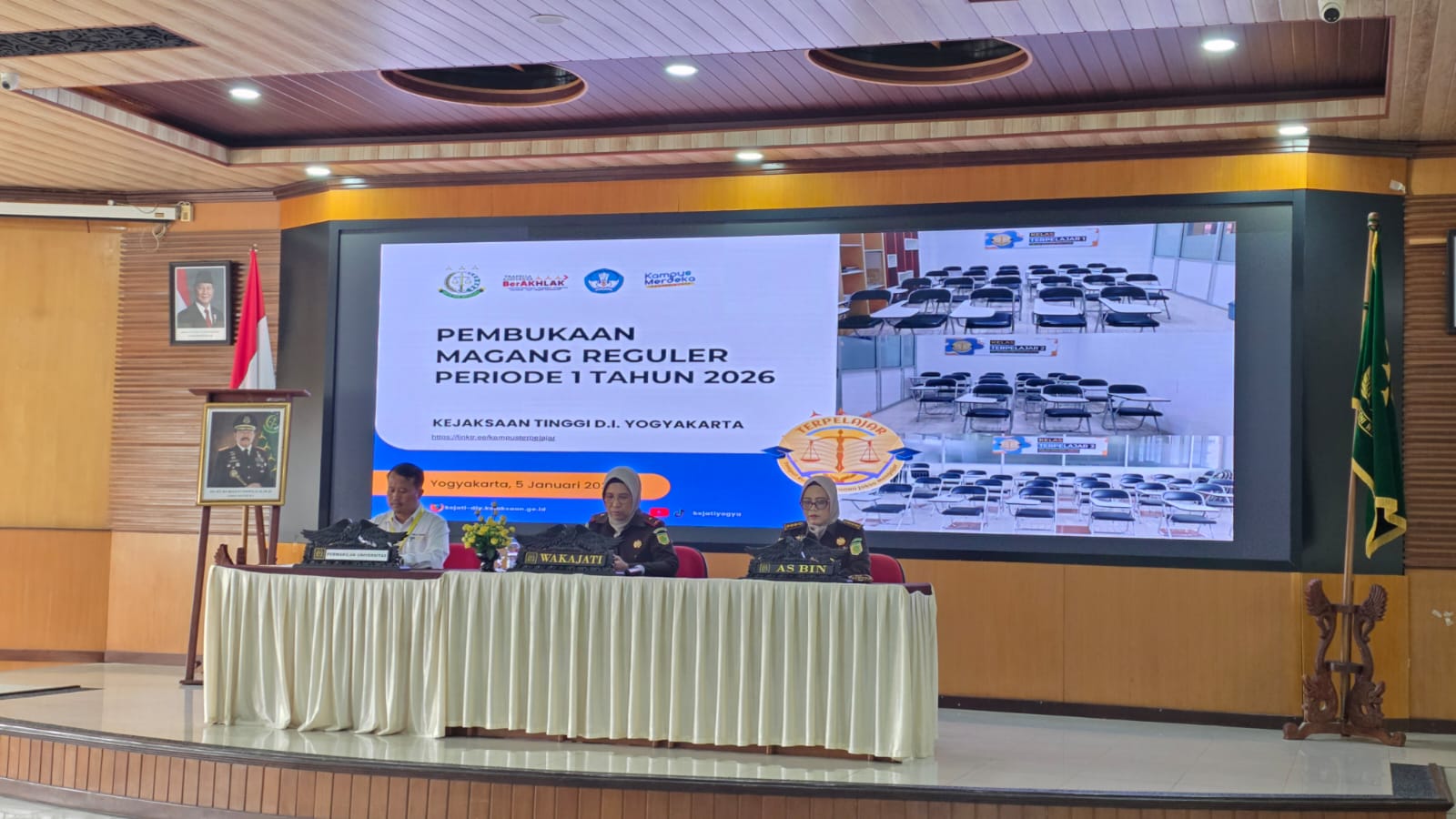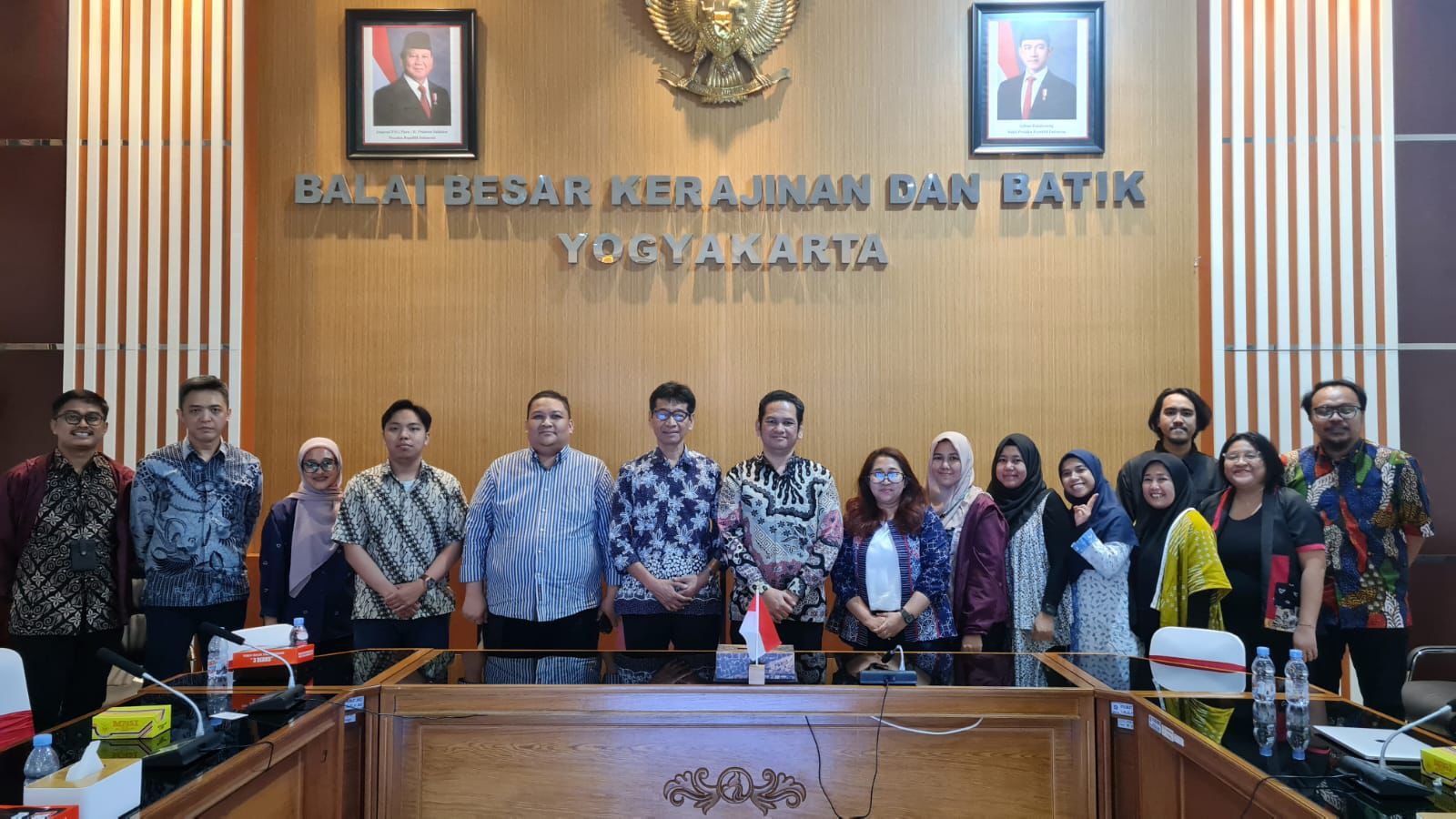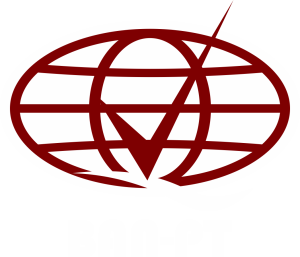In an effort to enhance public understanding of the klitih phenomenon from both a criminal law perspective and the crucial role of families in its prevention, Pro Justicia, a program broadcast by TVRI Yogyakarta, raised the theme: "Klitih in the Special Region of Yogyakarta: Criminal Law Aspects and the Role of Families in Prevention." The program aired on Tuesday, April 22, 2025, and was a collaboration between TVRI Yogyakarta and the Legal Consultation and Aid Center (PKBH) of the Faculty of Law, Universitas Gadjah Mada (FH UGM), with support from the High Prosecutor’s Office of the Special Region of Yogyakarta. This initiative is part of the implementation of the Tri Dharma of Higher Education, specifically in community service that is excellent, impactful, and meaningful.
The Pro Justicia broadcast began at 3:00 PM WIB, featuring speakers from diverse professional backgrounds. Present as guest speakers were Dr. Sigid Riyanto, S.H., M.Si., Lecturer at the Department of Criminal Law, Faculty of Law UGM; Dr. Rimawati, S.H., M.Hum., Lecturer at the Department of Customary Law, Faculty of Law UGM; and Lutvi Tri Cahyanto, S.H., M.H., Coordinator at the High Prosecutor’s Office of the Special Region of Yogyakarta.
During the broadcast, it was conveyed that addressing klitih cannot rely solely on repressive measures through existing criminal law enforcement. It also requires comprehensive and sustainable preventive strategies. These strategies must emphasize the central role of families in supervising and guiding children’s behavior while strengthening social values among adolescents. The legal outreach program served as a collaborative platform that underscored the importance of synergy between educational institutions, public media, and law enforcement agencies in building a justice system that not only punishes but also prevents. With a more holistic approach, adaptable to social dynamics, the justice system is expected to become more equitable and responsive to the need for child protection.
This program also aims to raise public awareness of the importance of collective efforts in preventing street violence such as klitih. Tackling klitih should not rely solely on criminal law and law enforcement agencies but must be supported by active family involvement and a nurturing community environment. Parents must be more engaged in supervising and guiding their children, while schools, communities, and law enforcement must work hand-in-hand to create a safe space for youth development.
This approach aligns not only with the context of law enforcement but also with the Sustainable Development Goals (SDGs), particularly Goal 16, promoting peaceful and inclusive societies, ensuring access to justice for all, and building effective, accountable institutions at all levels. Moreover, this activity supports Goal 17, strengthening partnerships for sustainable development, through the collaboration between academic institutions, public media, and the justice sector. Through such participatory and educational efforts, the spirit of justice-building is expected to grow and spread more widely throughout society.
Writer: Sahl Radian Setyaki








